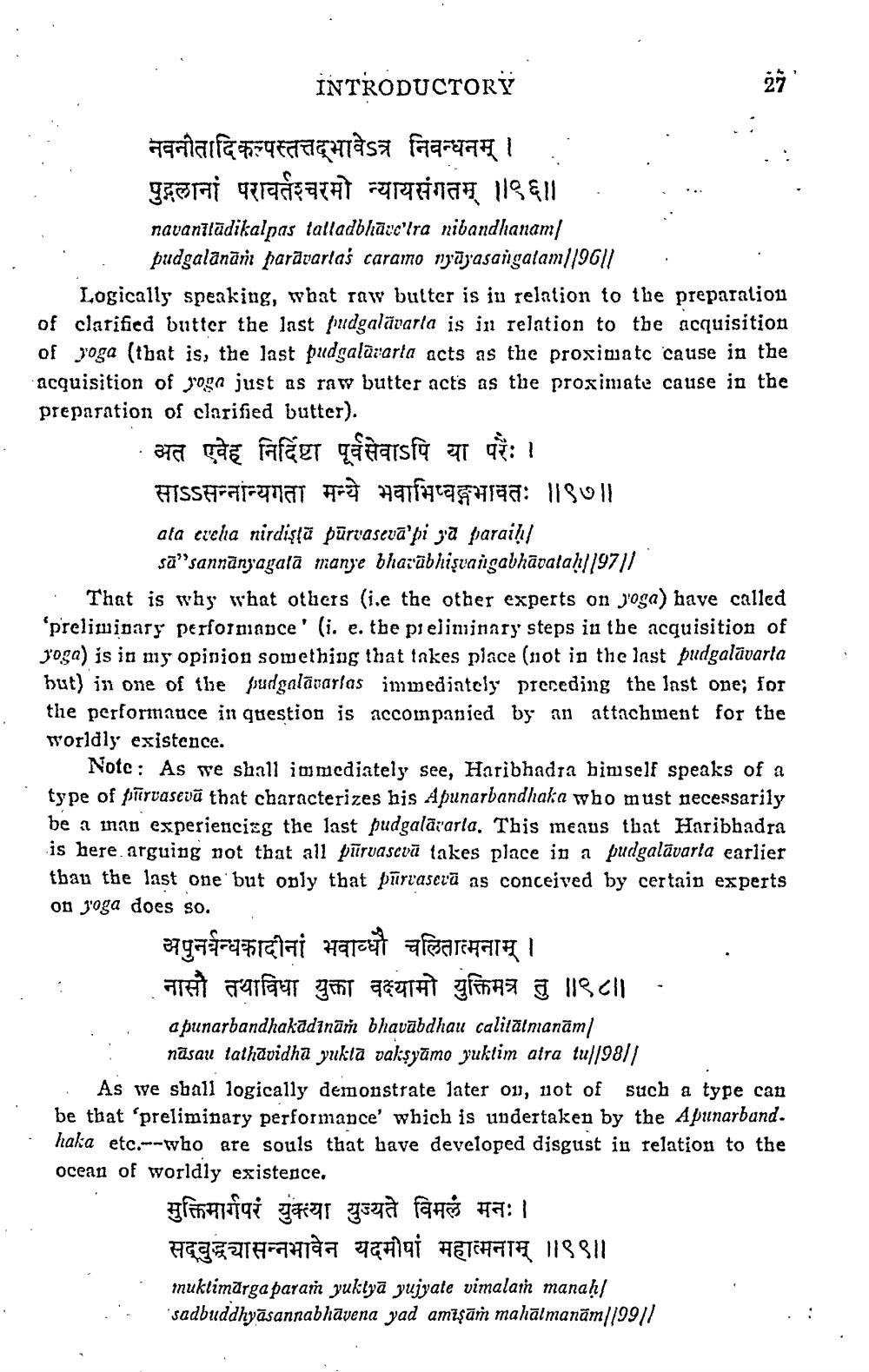________________
INTRODUCTORY
नवनीतादि कल्पस्तत्तद्भावेऽत्र निबन्धनम् । पुद्गलानां परावर्तश्चरमो न्यायसंगतम् ॥९६ ||
navanītādikalpas talladbhāve'tra nibandhanam] pudgalānāṁ þarāvarlaś caramo nyāyasañgatam||96||
Logically speaking, what raw butter is in relation to the preparation of clarified butter the last pudgalävarta is in relation to the acquisition of yoga (that is, the last pudgalavarta acts as the proximate cause in the acquisition of yoga just as raw butter acts as the proximate cause in the preparation of clarified butter).
अत एवेह निर्दिष्टा पूर्व सेवाऽपि या परैः ।
साssसन्नान्यगता मन्ये भवाभिष्वङ्गभावतः ॥९७॥
ata eveha nirdişta pūrvasevā'pi jā paraiḥ! sā”sannānyagalā manye bhavābhiṣvangabhāvataḥ||97||
That is why what others (i.e the other experts on yoga) have called 'preliminary performance' (i. e. the preliminary steps in the acquisition of Joga) is in my opinion something that takes place (not in the last pudgalavarta but) in one of the pudgalavarlas immediately preceding the last one; for the performance in question is accompanied by an attachment for the worldly existence.
Note: As we shall immediately see, Haribhadra himself speaks of a type of purvaseva that characterizes his Apunarbandhaka who must necessarily be a man experiencing the last pudgalavarla. This means that Haribhadra is here arguing not that all purvasevā takes place in a pudgalāvarta earlier than the last one but only that purvaseva as conceived by certain experts on joga does so.
agadzandai narut afarmarg |
नासौ तथाविधा युक्ता वक्ष्यामो युक्तिमत्र तु ॥९८॥
27
a punarbandhakādināṁ bhavābdhau calitātmanām
nāsau tathāvidhā yuktā vakṣyāmo yuktim_atra tu||98||
As we shall logically demonstrate later on, not of such a type can be that 'preliminary performance' which is undertaken by the Apunarband. haka etc.--who are souls that have developed disgust in relation to the ocean of worldly existence.
मुक्तिमार्गपरं युक्त्या युज्यते विमलं मनः । सबुद्ध्यासन्नभावेन यदमीषां महात्मनाम् ॥९९॥
muktimarga param yuktyā yujyate vimalam manaḥ sadbuddhyāsannabhāvena yad amīṣāṁ mahātmanām||99||




